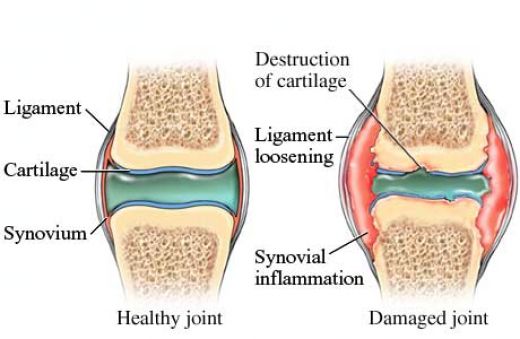What Owners of Senior Dogs Should Know About Arthritis
The other day, my friend Liz and I were talking about the fact that her large dog is nearing 10 years old, and he can’t really walk down the block without being in pain due to his hip dysplasia. This is negatively affecting her other dog’s (known as “fat-dog”) weight, since she really needs the exercise, but the older dog gets jealous and sad if he’s left behind.
Sadly, dog arthritis is relatable topic among many many owners of senior dogs. We want them to have fun and enjoy all the things they did as puppies, but their bodies just can’t handle it. Here are some remedies and tips for dealing with common health issues of older dogs.
RELATED ARTICLES:
- New Jersey Senate Passes a Bill Forcing New Pet Stores to Only Sell Rescue Animals
- Check This Zoo Out- Animals Roam Free And People Are Caged!
- Humans not smarter than animals, just different- say experts
What Qualifies as a Senior Dog?
Most of us know the general rule, one “dog year” is 7 “human years.” This basically means their life span moves at 7 times the rate ours does. So when they’re 5, that’s comparable to a 35-year-old human. When they’re 10, their body is comparable to a 70-year-old human.
Of course, this comparison is overly simplified. Dogs’ bodies age based on a number of factors (as do human bodies). One of the main contributing factors is size. Small dogs can live 10-18 years, while the average lifespan for dogs over 90 pounds is 8-10 years. There is lots of speculation as to why larger animals within a breed live shorter lives, but no scientific consensus has been reached. Theories involve the fast-paced rate at which large breeds achieve their size, which causes developmental disorders, musculoskeletal diseases, and tumors. This may be attributed to selective breeding, since nature hasn’t had time to account for the physical and biological changes as it would had natural selection had time to take place.
So in general, if your dog is over 5, you’ll want to keep an eye on their body and how it’s aging, particularly keeping an eye out for joint issues. Perhaps that’s a little early for dogs under 20 pounds, but it’s never too early to be intentional in your beloved pet’s care. If you think about it, even the healthiest human body experiences change due to age by the mid-30s.
Senior Dog Arthritis
Different breeds are subject to different issues as they age, but there are some diseases and ailments that are common across the board. These include arthritis, gum disease, blindness, kidney disease, diabetes, dementia, and cancer. It’s important to research your dog’s breed and see how their lifestyle may affect their quality of life in old age. Across the breed spectrum, the most common ailment is dog arthritis. Many larger breeds also experience other joint issues, often attributed to selective breeding.
Arthritis is basically inflammation in the joints. It causes pain when joints move in ways that irritate the inflammation. Arthritis can be caused by abnormal rubbing of joints, cartilage deterioration, and bone damage.
Safe and Friendly Remedies for Dog Arthritis
If you know anyone who has experienced the pain caused by inflammation, dog arthritis isn’t much different and most treatments focus on management. Some activities become impossible to do without experiencing pain. Here are some strategies for giving your senior dog a full life with minimal symptoms of arthritis.
- Joint-friendly Activities– Dogs are generally playful, and it can be hard to find activities that don’t cause arthritic dogs pain. Try spending playtime with your dog in water, such as lakes and pools. Water takes a lot of strain off the muscles, and provides a great workout without irritating the joints! Just be sure to follow basic pool safety to keep dogs safe.
- Collagen– Collagen is responsible for the elasticity of joints. Many dogs experience collagen deficiencies as they age; their bodies simply stop producing it at the levels they need. There are many natural collagen supplements that you can use to provide your dog with the collagen they need for strong joints.
- Turmeric Paste– It seems like turmeric fixes everything, and dogs are no exception! Much of the main cause behind arthritis is inflammation. As an anti-biotic, anti-inflammatory substance, turmeric can be highly effective in reducing the symptoms of arthritis. You can make a simple turmeric paste to apply to your dog’s problem areas, usually the hips and knees. Read more about the benefits of turmeric for arthritis in dogs here.
- Being Prepared- If your dog shows early signs of arthritis, like being in pain after too much movement, get it checked out immediately, and build a plan for treatment involving the bullet points above and supplements that support healthy bone growth, collagen production, and cartilage health. You’ll also want to make sure you have these 6 phone numbers every dog owner should know, so you’re always prepared for an emergency.
These are just some of the many ways you can keep arthritis from having too much of a negative impact on your dog’s life. Have you tried other treatments? Share your experience in the comments!
*Article originally appeared at Healthy Holistic Living.












